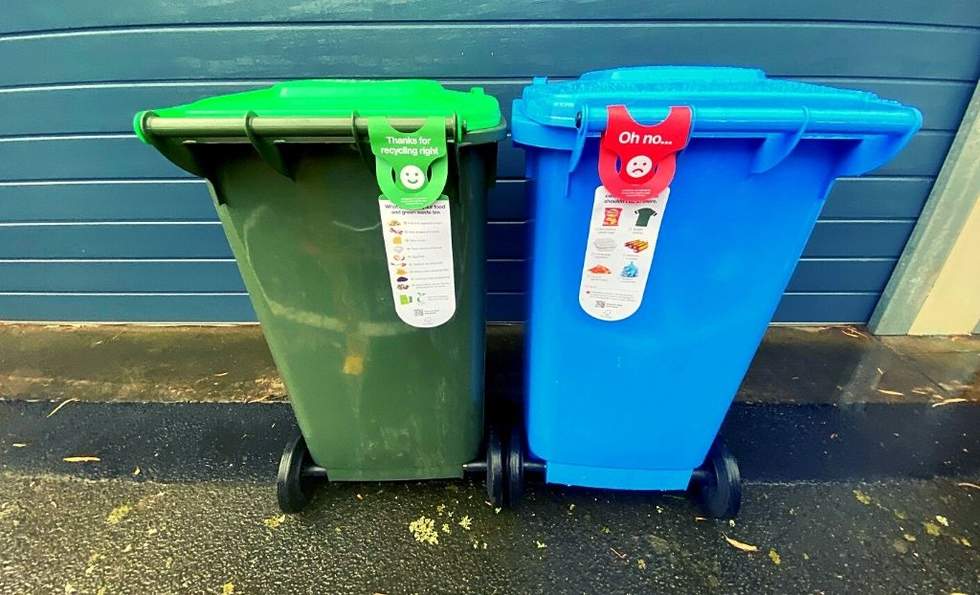Getting your recycling right
Bin-spections starting soon
From next week, we’ll be lifting the lid on Bayside’s recycling habits with our dedicated bin-spectors checking 5,000 randomly selected food and green waste and recycling bins.
With a simple lid lift- the bins will be visually checked to ensure the right things are going in the right bin.
We’ll be leaving feedback, via a bin tag, with tips on how to get your recycling right with reminders of which items can be recycled.
No private or identifiable information is being collected with all waste and recyclables to be disposed of as per the normal collection process.
Why are we doing this?
After a challenging year and the ongoing impacts of the COVID-19 pandemic, some of our recycling right habits have slipped - we want to help our community get back on track.
Our bin health checks are a great opportunity to refresh our knowledge and reduce our contamination rates.
Refresh your recycling knowledge
If you are unsure about what goes in what bin, visit our What can go in your bins webpage or our comprehensive A-Z waste & recycling directory.
What happens to our recycling and food and garden waste?
Learn how your recyclables and food and garden waste is processed by visiting our what happens to my recycling or food and garden waste pages.

Your questions answered
What is the program?
From next week, we will have dedicated bin-spectors lifting the lids on 5,000 randomly selected food and green waste and recycling bins across Bayside to check out our recycling habits.
Bins that have the right things in them will get a ‘thanks for recycling right’ tag while bins that are found with contamination will get an ‘oh no…’ tag. Feedback will include useful tips and tailored advice as well as a list of accepted items.
How does the program work?
Official Council contractors, our dedicated bin-spectors, will visually assess the randomly selected household’s recycling or food and green waste bin at the kerbside prior to collection on bin day.
Based on the visual assessment, each bin will have a bin tag placed on it that will provide relevant feedback on doing a great job, or if there’s room for some recycling improvement.
How can I ensure my privacy?
No private or identifiable information is being collected with all waste and recyclables to be disposed of as per the normal collection process. All recorded information will be stored in line with the Information Privacy Principles outlined within the Privacy and Data Protection Act 2014 (Vic). Information will be held in a restricted database and will be accessed and reviewed for the purpose of service improvement only.
Why is Bayside doing this?
After a challenging year and the ongoing impacts of the COVID-19 pandemic, some of our recycling right habits have slipped- we want to help our community get back on track.
Our bin health checks are a great opportunity to refresh our knowledge and reduce our contamination rates.
What is contamination?
Contamination is any material placed in your recycling or food and green waste bins that isn’t meant to be there.
Incorrect items can get caught in the machinery, contaminate the recyclable materials, impact the quality of the end product, and pose a serious hazard to workers at the recycling and composting facilities.